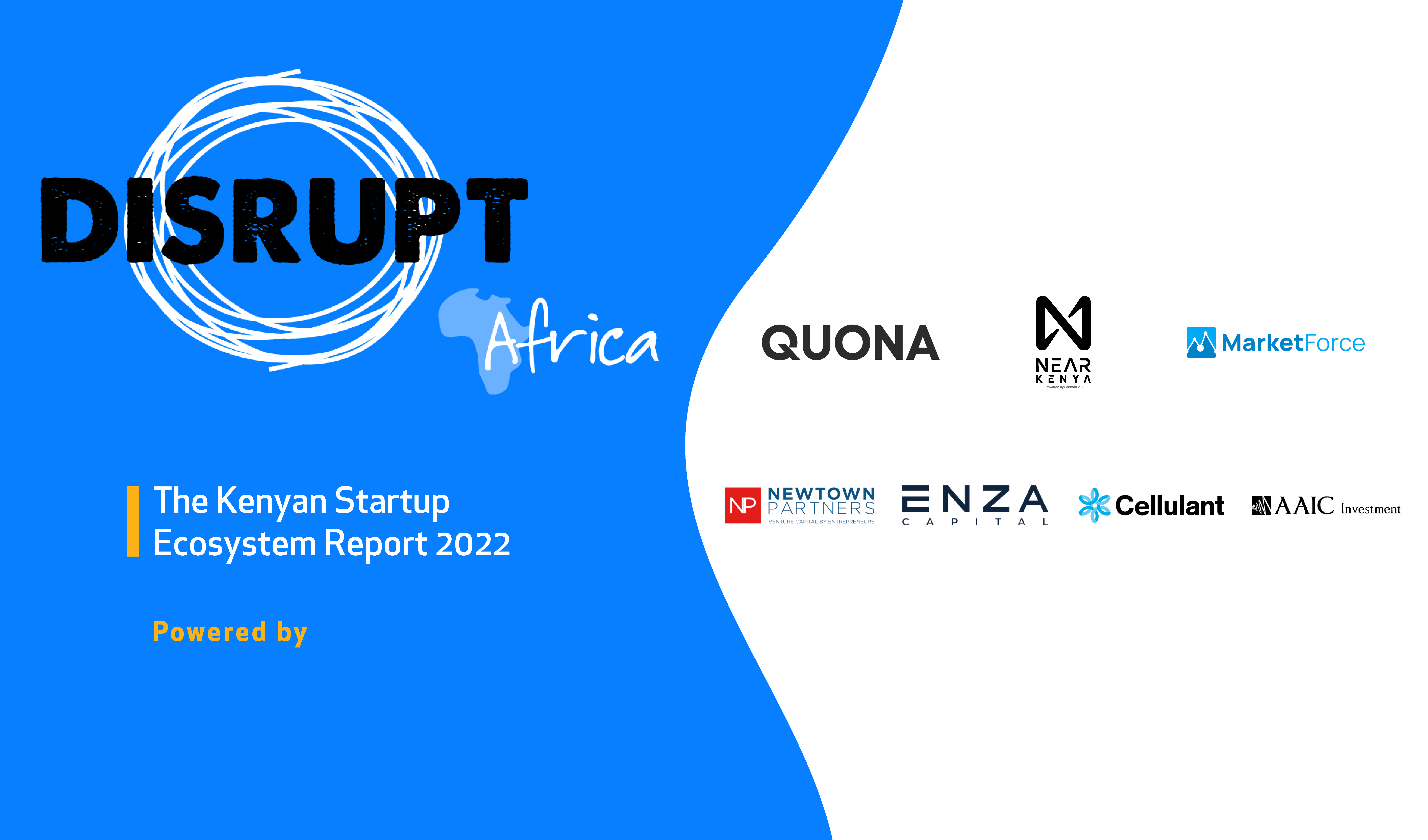Kenyan startups are second only to their Nigerian counterparts when it comes to funding raised in the last eight years, yet the country lags behind other “tier one” ecosystems when it comes to acquisitions or exits.
That is according to the Kenyan Startup Ecosystem Report 2022, released by startup-focused news and research company Disrupt Africa earlier this month.
Since launching its research arm in 2016, Disrupt Africa has built up a significant portfolio of publications, most notably the African Tech Startups Funding Report and Finnovating for Africa, available free for all via open-sourcing initiatives with various partners across the continent’s tech ecosystem.
The Kenyan Startup Ecosystem Report 2022, its 19th publication and fourth country-focused report, was released in partnership with Quona Capital, NEAR Kenya, MarketForce, Newtown Partners, Enza Capital, Cellulant, and AAIC Investment, and is also available for free.
It finds that Kenya is one of the four leading startup ecosystems on the continent when it comes to funding, with 242 individual Kenyan startups having secured investment between January 2015 and mid-November 2022. Those startups secured a combined US$1,281,918,200 between them, a figure bettered in that time only by Nigeria.
This year is already a record-breaking one for Kenya. As of mid-November, 63 Kenyan startups had raised funding in 2022, with the country’s running total for the year standing at US$506,686,000. This is approaching double the US$291,983,000 raised by Kenyan startups in 2021, and represents a record annual total for the ecosystem.
The growth in the total amount of investment secured by Kenyan startups each year has been significant. Back when Disrupt Africa records began in 2015, Kenyan startups raised just a combined US$47,365,000.
The size of the largest rounds of each year are also increasing in size, but not in such a hockey-stick fashion. So far this year, the largest disclosed round went to energy company M-KOPA Solar, which bagged US$75 million in funding, yet that is still smaller than the US$85 million raised by Gro Intelligence in 2021. Nonetheless, the ecosystem has come a long way since 2016, when the largest disclosed round was worth less than US$2 million.
Whereas in other leading African startup ecosystems the fintech space is a clear favourite for investors, in Kenya investment flows a little more equally. While generally fintech accounts for the lion’s share of funded ventures, when it comes to total secured funding a handful of sectors have come out on top in the years since 2015. Agri-tech and energy have at various points been recipients of the most capital, generally dependent on whether it was Twiga Foods or M-KOPA Solar securing a bumper round that year, while in 2022 e-commerce and retail-tech has emerged as a dominant force.
In spite of being one of the more-established African tech startup ecosystems, in many ways a pioneer, Kenya to a large extent lacks a local investment scene compared to its counterparts in Nigeria and South Africa. Nonetheless, the likes of Novastar Ventures and Chandaria Capital are worthy of mentions, and their funding is supplemented by international capital. Both pan-African early-stage investors, key among them Kepple Africa Ventures, DFS Lab, and Launch Africa Ventures, and institutional funders such as DOB Equity and IFC, are active in the country.
A very real lack of exits
While a leader from a funding perspective, Kenya lags far behind South Africa, Egypt and Nigeria when it comes to acquisitions of its startups, with only 10 such deals taking place since Disrupt Africa started tracking this data in 2016. That places the country fourth on the continent, though mention must be made of the 2015 acquisition of Weza Tele, which was at least then considered a major breakthrough.
There has certainly been an uptick in activity here, however. Until 2021, only five Kenyan startup acquisitions had taken place since 2016. Two deals were completed in 2021, and a further three have gone through so far in 2022, suggesting a degree of momentum in this regard. There has been no such deal to rival that of Nigeria’s Paystack being acquired by Stripe, for example.
Given there has been such little activity, it is not surprising that there are few trends to be found within the data. In terms of sector, startups operating in fintech, e-commerce, retail-tech, AI, entertainment, ed-tech and e-health have been acquired. What is clear, however, is that the vast majority of these deals, seven of 10, have been “intra-ecosystem” ones, with one Kenyan startup buying out another one.
Indeed, Kenyan startups have proven themselves to be active acquirers, whether of local or international counterparts, with the likes of Ajua, MarketForce, AZA Finance, BRCK, Elloe and Lami active in this regard in the last couple of years alone. A further three – all occurring in 2019 or earlier – were what Disrupt Africa would refer to as genuine, bonafide exits for startup founders and their investors, where a successfully scaled, or quickly scaling, startup has been bought out by a larger, corporate entity – either local or international – for a significant cash fee.
—
The Kenyan Startup Ecosystem Report 2022 is available to all for free, making the data and analysis contained in its pages accessible to those for whom the information is most valuable – entrepreneurs.
The publication, which is the 19th released by Disrupt Research, provides a detailed overview of the Kenyan startup ecosystem and its development over the last 5-10 years. It involves analysis as to what areas startups are active in, a detailed look at funding and M&A trends, and details the range of startup support services available to Kenyan entrepreneurs, including hubs, incubators, accelerators, and government, corporate and university initiatives.



